Politics
APGA suspends Soludo’s allies over anti-party activities
Published
7 months agoon
By
Ekwutos Blog
The All Progressives Grand Alliance (APGA) National Working Committee (NWC) has suspended allies of Anambra State Governor Chukwuma Soludo over alleged anti-party activities.
The suspension was announced during a briefing by the APGA National Chairman, Chief Edozie Njoku, to journalists in Abuja on Thursday. He outlined the party’s decision to address various infractions and instances of indiscipline within the organization.
According to Njoku, this action stems from their alleged involvement in illegal primary elections and congresses in Anambra State, contrary to the party’s constitution.
The suspended members include Barr. Sylvester Ezeonwuka, Mr. Ifeatu Obi-Okoye, Dr. Alex Obiogbolu, and all candidates who emerged from the illegal exercises.
Additionally, the APGA NWC condemned the actions of Chief Victor Oye, who is awaiting sentencing at the trial court for allegedly disrespecting court judgments.
APGA praised INEC Chairman, Prof. Yakubu Mamood, for obeying court orders and purging himself of contempt charges.
The party also warned other national and state assembly members elected on the APGA platform, including Governor Soludo, to desist from anti-party activities or face disciplinary action.
Njoku stated that a disciplinary committee has been set up to investigate the suspended members and make recommendations to the NWC.
He said, “APGA has a rich history of discipline upon which it was founded. That trend must be sustained at all cost. Any member of the party whose activities or conduct, which is likely to embarrass the Party or have adverse effect on the Party or bring incalculable harm to the Party or cause public ridicule or disrepute shall be suspended at the instance of the NWC for a period of six months.
“Consequently, the following members are hereby suspended: Barr. Sylvester Ezeonwuka, Mr. Ifeatu Obi-Okoye, Dr. Alex Obiogbolu, and all those that participated in the illegal Anambra Local Government congresses and primaries, and emerged as purported candidates in Gov. Soludo’s list (as LG Chairmen and Deputies in all the 21 LGAs and the Councillorship Candidates in all the 326 Wards) of Anambra State as published by the Anambra State Independent Electoral Commission (ANSIEC) for the coming LG elections of September 28, 2024.
“Clearly, the party members involved in this have shown utmost disdain and disrespect to the Supreme Court Judgment, and we have given them enough opportunity to retrace their steps and return to the fold. Unfortunately, what they wanted to achieve with this suit was to ensure my removal so that the illegal candidates they fielded as APGA candidates for the forthcoming Local Government elections in Anambra can succeed. This is unacceptable.
“The NWC equally condemns in strongest terms the brazen disrespect of the judgments of Courts by Chief Victor Oye, who is awaiting sentencing at the trial Court. On the other hand, we commend the INEC Chairman, Prof. Yakubu Mahmood, for his obedience and law-abiding nature, by taking steps to purge himself of the contempt charge on him.
“The NWC strongly condemns the actions of Governor Chukwuma Soludo and other National Assembly and State House of Assembly Members elected on APGA platform and advise them to take steps to redeem themselves from these anti-party activities or face appropriate disciplinary actions. The NWC restates its confidence in the leadership of Chief Edozie Njoku as the National Chairman of APGA and urges all party members that the Party is Supreme.”
You may like


NAF airlifts Airforce students to their destinations across Nigeria
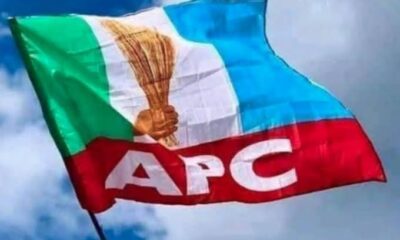

APC CANDIDATES FOR 2025 NIGER STATE LOCAL GOVERNMENT COUNCIL ELECTION
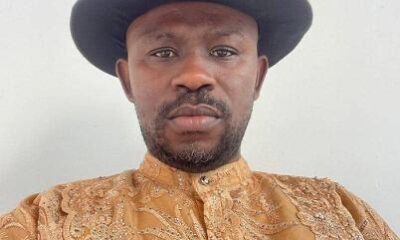

Kyari brought structure, stability to NNPCL – NDYC
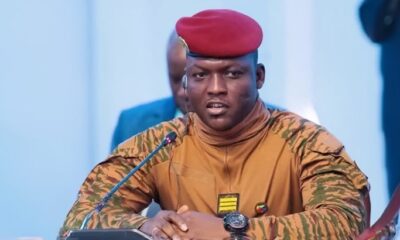

ANALYSIS: With Traore, Burkina Faso can get governance right, achieve developmental aspirations
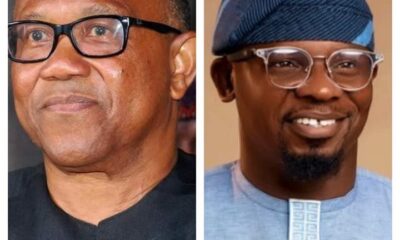

PETER OBI WILL WIN 2027 ELECTION EFFORTLESSLY—- Ife Salako(Labour party spokesperson Lagos state)
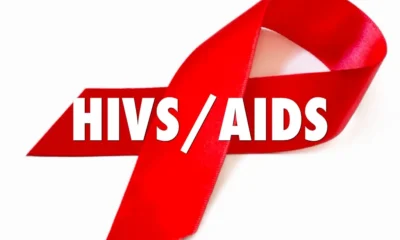

Ogun unveils new strategy to fight HIV/AIDS
Politics
APC CANDIDATES FOR 2025 NIGER STATE LOCAL GOVERNMENT COUNCIL ELECTION
Published
6 hours agoon
April 24, 2025By
Ekwutos Blog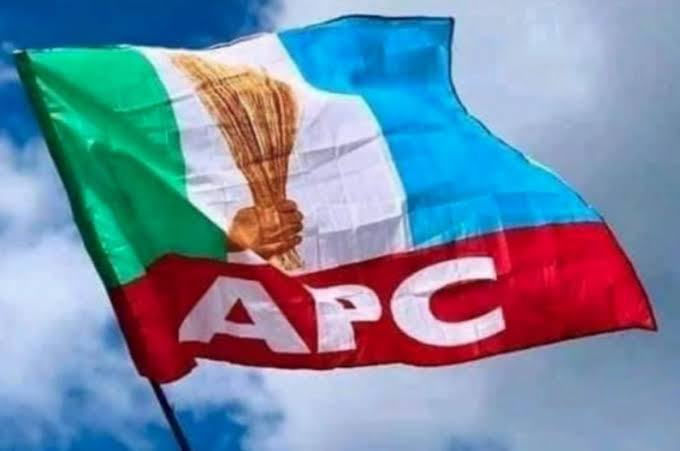
1. Hon. Sayuti Ibrahim Halilu – Again
2. Hon. Iliyasu Zakari – Agwara
3. Hon. Usman Manko Mohammed – Bida
4. Hon. Abdullahi Mohammed Nasiru – Borgu
5. Hon. Abdullahi Usman Laka – Bosso
6. Hon Mustapha Mohammed Jibril – Chanchaga
7. Hon. Usman Ndana – Edati
8. Hon. Hassan Mohammed – Gbako
9. Hon. Jonah Ishaya – GURARA
10. Hon. Isah Baba Bida – Katcha
11. Hon. Lawal Yusuf – Kontagora
12. Hon. Abdullahi Umar Evuti – Lapai
13. Hon. Mohammed Alfa Ma’ali – Lavun
14. Hon. Mamuda Mamman – Magama
15. Hon Aliyu Baga Mohammed – Mariga
16. Hon. Umar Jibril Igade – Mashegu
17. Hon. Jibril Abdullahi Muregi – Mokwa
18. Hon. Aminu A. Najume – Munya
19. Hon. Aminu Umar Yandayi – Paikoro
20. Hon. Ayuba Usman Katako – Rafi
21. Hon Abdullahi Yakubu Dukku – Rijau
22. Hon. Isyaku Bawa – Shiroro
23. Hon Isyaku Bawa Naibi – Suleja
24. Hon. Danladi T. Ijah – Tafa
25. Hon Mohammed Ibrahim Lokogoma – Wushishi
Politics
ANALYSIS: With Traore, Burkina Faso can get governance right, achieve developmental aspirations
Published
6 hours agoon
April 24, 2025By
Ekwutos Blog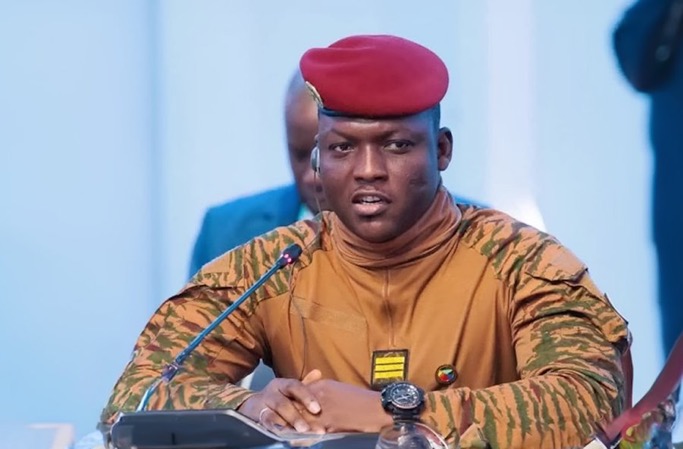
The challenge will be translating Burkina Faso’s rich mineral resources and promising economy into stability and development.
At 36, Burkina Faso’s Ibrahim Traoré is the world’s youngest president, in stark contrast to Africa’s average leader age of 63. He took office in September 2022 after overthrowing Paul-Henri Damiba, who had ousted former president Roch Kaboré earlier that year.
The foundations of the country’s coup administration have been rocky. Last week, the military government survived another apparent coup attempt; one among several since Mr Traoré, an army captain, came to power.
In his inaugural statement, Mr Traoré said Burkina Faso faced an emergency, citing crises in security, defence, healthcare, social action and infrastructure. He pledged to combat terrorism and adhere to the transition timetable agreed with the Economic Community of West African States (ECOWAS), which aimed to restore democratic rule by 1 July 2024.
However, Burkina Faso has since withdrawn from ECOWAS, forming instead the Alliance of Sahel States with Mali and Niger – countries also run by post-coup administrations. Under Burkina Faso’s new transition plan, Mr Traoré may remain in his position until at least 2029.
His popularity has soared since his ascension to power. At President John Mahama’s inauguration in Ghana on 7 January, Mr Traoré received the loudest applause of all 21 African heads of state. This showed not only his popularity but the trend of tolerance for military rule in Africa, especially among the youth.
Afrobarometer reports that almost two-thirds of Burkinabé believe the army should intervene when leaders abuse their power. Likewise, 66 per cent accept military rule, up from 24 per cent in 2012. The fact that the survey was conducted at a time when the country was under military rule portrays a general acceptance of the regime.
However, Mr Traoré’s popularity goes beyond acceptance of military rule. He has embarked on radical reforms that resonate with many Burkinabé. These include reversing his predecessor’s salary increase for government officials while he remainson his military captain earnings.
As part of efforts to take ownership of mineral resources, Mr Traoré has nationalised two gold mines and stopped exporting unrefined gold to Europe, instead inaugurating a national gold refinery expected to process 150 tonnes annually.
Other significant achievements include establishing the National Support Center for Artisanal Cotton Processing, building a new airport, and considerable agricultural investment.
While these are noble attempts to industrialise Burkina Faso, the country must not fall into the usual traps of inefficiencies, corruption and mismanagement that characterise most African state-owned enterprises.
Further, Mr Traoré has rejected financial assistance from the International Monetary Fund and World Bank, insisting the country can develop without the West’s loans and conditionalities. For some, this is a demonstration of Africans handling their own affairs. For the youth, Mr Traoré’s regime is a chance to show what young people can achieve. But for most ordinary Burkinabé, the priority is simply improving their daily living conditions.
At a time of increasing global uncertainty and a decline in international aid, Africa must strive for self-reliance and control of its resources. Like many African countries, Burkina Faso is blessed with natural resources that, if properly managed, could transform citizens’ lives.
The country has mineral resources and produces substantial quantities of gold, zinc, copper, manganese, phosphate and limestone. It also has reserves of diamonds, bauxite, nickel and vanadium, most of which remain largely unexploited.
The country has made gains. Gross Domestic Product (GDP) (in market exchange rate) increased from $3.2 billion in 1990 to $18.3 billion in 2023, and extreme poverty declined from 83 per cent to 27.7 per cent in the same period. But significant challenges remain.
According to the 2023/2024 Human Development Report, Burkina Faso is classified as having low human development and is ranked 185th out of 193 countries on the Human Development Index. Itplaced 149th out of 167 countries on the 2024 Sustainable Development Goals Index, and on the Multidimensional Poverty Index, 64.5 per cent of the population is multidimensionally poor.
However, the economy holds significant promise. Recent research by the Institute for Security Studies’ African Futures and Innovation team shows that Burkina Faso’s economy could grow at an average rate of 8 per cent from 2025 to 2043.
This would translate into an additional GDP per capita of $1,120 above a business-as-usual forecast – and reduce income poverty to only 2.6 per cent of the population. This means an extra 2.4 million Burkinabés could be lifted out of poverty by 2043.
The study identified governance reforms as critical to unlocking the country’s development potential. Indeed, good governance could raise GDP per capita by an extra $240 above a business-as-usual forecast, lifting 500,000 additional Burkinabé out of extreme poverty.
For this, Mr Traoré must lead the country in overcoming political instability, violent extremism and weak institutions. Institutional and structural reforms are needed to enhance security, accountability, public sector efficiency and governance inclusion.
The immediate priority is addressing terrorism, which resulted in the loss of about 40 per cent of the country’s territory, undermining the state’s authority and ability to deliver public services, as thousands of schools and health facilities are closed in those areas. The UN Refugee Agency estimates that over two million people are internally displaced, and those needing humanitarian assistance increased by 35 per cent between 2022 and 2023.
Next should be building strong institutions and strengthening existing ones to improve public sector efficiency and combat corruption. Local governments must be empowered with the resources and capacity to implement development programmes tailored to communities’ needs.
In the medium term, the country must transition into constitutional rule to ensure the political stability and legitimacy needed to drive economic growth. This would also enhance investor confidence, allowing Burkina Faso to attract the foreign direct investment needed for its development. The African Union, civil society organisations and development partners should support the 60-month transition plan to ensure a smooth transition to democracy.
This is not the first time such a charismatic figure has emerged on Africa’s political scene. Many revolutionary leaders started the same way but later deviated from the course as they clung to power. In Ghana, 32-year-old Jerry Rawlings, nicknamed ‘Junior Jesus’, emerged in late 1979 in a bloody revolution to fight corruption and sanitise the country’s political system. But after 19 years in power, his legacy was mixed.
With a young, strong, charismatic leader, Burkina Faso has a chance to get its governance right and achieve its developmental aspirations. This could be a lasting legacy for Traoré’s regime.
Enoch Randy Aikins, Researcher, African Futures and Innovation, Institute for Security Studies (ISS)
(This article was first published by ISS Today, a Premium Times syndication partner. We have their permission to republish).
Politics
PETER OBI WILL WIN 2027 ELECTION EFFORTLESSLY—- Ife Salako(Labour party spokesperson Lagos state)
Published
7 hours agoon
April 24, 2025By
Ekwutos Blog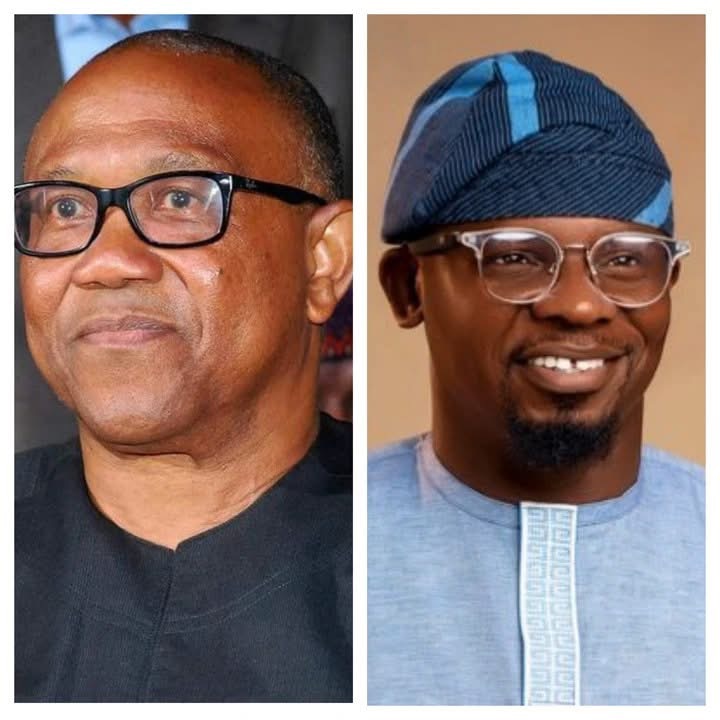
the labour party spokesperson, Lagos state chapter, Mr Ife Salako has affirmed that Peter Obi may not need the help of any governor to win the 2027 general election. Speaking about the recent decamp of some PDP politicians to APC, include that of the incumbent and former Governor of Delta state, the labour party spokesman is of the opinion that these defections have no negative effects on Peter Obi and his chances of becoming the next President of Nigeria.
In his tweet on X, he noted that:
“Okowa and all PDP Governors can defect to APC for all I care,” he wrote. “Let me just remind you all that Peter Obi had not one Governor with him in 2023 and he secured 6 million votes out of all the votes he got.”
“Now, he has 6 million soldiers to defend his votes. PETER OBI WILL WIN 2027 ELECTION EFFORTLESSLY!”

NAF airlifts Airforce students to their destinations across Nigeria

APC CANDIDATES FOR 2025 NIGER STATE LOCAL GOVERNMENT COUNCIL ELECTION

Kyari brought structure, stability to NNPCL – NDYC
Trending

 Trending6 months ago
Trending6 months agoNYA demands release of ‘abducted’ Imo chairman, preaches good governance
- Business6 months ago
US court acquits Air Peace boss, slams Mayfield $4000 fine

 Politics6 months ago
Politics6 months agoMexico’s new president causes concern just weeks before the US elections
- Entertainment6 months ago
Bobrisky transferred from Immigration to FCID, spends night behind bars
- Entertainment6 months ago
Bobrisky falls ill in police custody, rushed to hospital

 Politics6 months ago
Politics6 months agoRussia bans imports of agro-products from Kazakhstan after refusal to join BRICS

 Politics6 months ago
Politics6 months agoPutin invites 20 world leaders
- Politics1 year ago
Nigerian Senate passes Bill seeking the establishment of the South East Development Commission.

